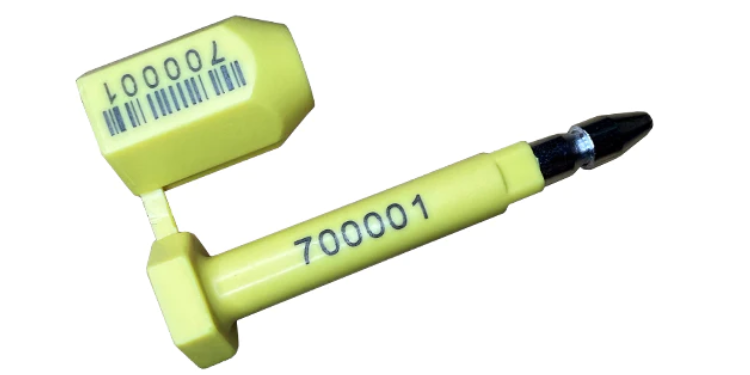The ISO 17712 certification holds paramount significance in the realm of cargo transportation and security. This certification sets the standard for mechanical seals used on containers, thereby safeguarding shipments from tampering, theft, and unauthorized access. In Italy, a country known for its thriving trade and commerce, obtaining ISO 17712 certification has become a critical factor in ensuring the integrity of cargo during transit.
The ISO 17712 certification encompasses various requirements that must be met by the manufacturers of security seals. These seals serve as a vital line of defense, deterring potential threats to cargo and guaranteeing that the contents of containers remain intact and unaltered. The certification process involves meticulous testing and evaluation of these seals to confirm their effectiveness in real-world scenarios.
To attain ISO 17712 certification in Italy, manufacturers and suppliers of security seals must adhere to a set of stringent guidelines.
These guidelines encompass three main categories of seals:
- Indicative Seals (I): These seals are designed to show evidence of tampering, but they do not offer high security. They are often used for applications where a moderate level of protection is required, such as transportation within a low-risk environment.
- Security Seals (S): Security seals provide a higher level of protection against tampering and unauthorized access. They are suitable for use in more critical transportation scenarios, where the value or sensitivity of the cargo demands enhanced security measures.
- High-Security Seals (H): High-security seals are the most robust and tamper-evident. They are used to secure high-value shipments or shipments that are at a higher risk of theft or tampering. These seals undergo the most rigorous testing and are designed to resist sophisticated tampering attempts.
ISO 17712 certification involves comprehensive testing and evaluation procedures, including tests for tamper resistance, strength, and durability. The seals are subjected to various environmental conditions and mechanical stresses to ensure their reliability and effectiveness. Additionally, the certification process requires manufacturers to establish quality management systems that adhere to ISO 9001 standards, further guaranteeing the consistency and reliability of the produced seals.
In Italy, the ISO 17712 certification holds immense relevance due to the country’s role as a major hub for international trade. With its extensive network of ports and transportation infrastructure, Italy facilitates the movement of goods across continents. Ensuring the security of these goods during transit is of paramount importance to protect against pilferage, tampering, and other security risks.
Obtaining ISO 17712 certification in Italy offers several benefits:
- Enhanced Security: ISO 17712-certified seals provide a robust barrier against unauthorized access, deterring theft and tampering.
- Global Recognition: The certification is internationally recognized, facilitating smoother cross-border transportation and trade.
- Compliance: ISO 17712 certification ensures compliance with global security standards and regulations, demonstrating a commitment to cargo security.
- Risk Mitigation: By using certified seals, cargo handlers can mitigate the risks associated with tampering, reducing potential losses and liabilities.
- Customer Trust: Certification enhances customer trust by showcasing a dedication to cargo security and integrity.
Conclusion:
ISO 17712 certification plays a pivotal role in ensuring secure cargo transportation in Italy. The rigorous testing, evaluation, and adherence to international standards provide a robust defense against tampering and unauthorized access. As Italy continues to be a key player in global trade, the ISO 17712 certification acts as a safeguard, protecting valuable shipments and bolstering the nation’s reputation as a secure and reliable trade partner.











